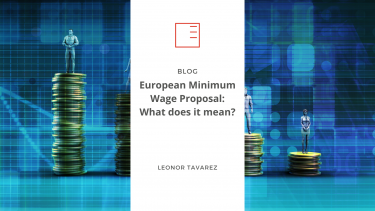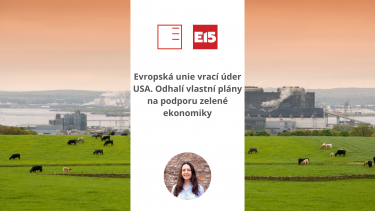iDNES: Will the Czech Republic increase its influence in Brussels? Pavel and the compatriots working there will help
President Petr Pavel headed to Brussels, where our country has the potential to increase its influence, and the head of state can only help this. In the last year, our country has proven that it can not only point out problems, but also propose solutions. An example is support for Ukraine, writes the head of the Brussels office Žiga Faktor.
Show more
Policy Paper | 2022 Czech Presidency: A Surprising Success
The second-ever Czech presidency of the EU Council took place in the second half of 2022, a period in which the EU was under considerable pressure following the Russian invasion in Ukraine. What many predicted would be another regular presidency, became half a year of crisis management. Writes Vít Havelka in his Policy Paper called: 2022 Czech Presidency: A Surprising Success.
Show more
Blog | European Minimum Wage Proposal: What does it mean?
Ensuring that workers in the Union receive an adequate minimum wage is essential to ensure adequate working and living conditions and to build a fair and resilient society, as set out in Principle 6 of the European Pillar of Social Rights. Leonor Tavarez writes in her blog.
Show more PDFNational Convention on the EU | Background paper: review of the European energy market
Vít Havelka, Rebeka Hengalová, and Katarína Svitková prepared a background paper for the National Convention on the EU Round Table on the Review of the European Energy Market. How can the EC proposal for the revision of the European electricity market be assessed from the Czech Republic's perspective? How can the revision of the internal gas market rules be assessed in the context of the energy crisis? How should the EU prepare for the coming winter?
Show more PDF

E15: EU responds to US superoffers. But it forgot about nuclear, experts wonder
Our senior research fellow Kateřina Davidová commented for E15 on two proposals to boost Europe's green economy.
Show more
Euractiv: Debate on synthetic fuels for cars is nonsense, the fundamental question is elsewhere
The future of cars with exhausts is stirring Europe. That is why Czech Transport Minister Martin Kupka (ODS) went to Strasbourg to discuss the promotion of "realistic" rules. He is partly right. However, in the fight for synthetic fuels, which has been launched by the Germans, realism is clearly on the side of a proposal that has long been on the table. And whose future is now being threatened by Kupka and co. The commentary was written by our senior researcher Vít Havelka.
Show more
E15: The European Union strikes back at the US. EU unveils its own plans to boost the green economy
This week, the European Commission will present two important proposals to the public - the Critical Raw Materials Act and the Net-Zero Industry Act. Both regulations are a response to the US Inflation Reduction Act of 2022 and aim to make the European economy more competitive and prevent a mass exodus of companies and technological innovation to the United States, Kateřina Davidová, our senior researcher, contributed to this topic.
Show more
ČRo Plus: The proposal that would end the sale of new cars with internal combustion engines from 2035 is postponed
Our senior researcher Kateřina Davidová commented for ČRo Plus on the postponement of the vote to end the sale of new cars with internal combustion engines, which is to apply from 2035. Its final approval was not supported at the last minute by Germany, which is concerned that the proposal does not include an exemption for vehicles that would burn synthetic fuels.
Show more
POLICY PAPER: Finding Transatlantic Unity in Times of Conflict 2022. Transatlantic Policy Forum in Review
Our researchers Danielle Piatkiewicz and Hugo Blewet-Mundy have written a policy paper on "Finding Transatlantic Unity in Times of Conflict 2022. Transatlantic Policy Forum in Review" which aims to outline action points and proposals that the Transatlantic Partnership should adopt.
Show more PDFBLOG | European Media Freedom Act on the case of Slovenia: Has Slovenia overtaken the European Commission with its new law?
In September 2022, the European Commission put forward a proposal for a new media regulator - the European Media Freedom Act. Slovenia is one of the most struggling EU countries in terms of media freedom and independence. In the summer of 2020, the Janša government proposed a media-focused law that would increase the state's influence over Slovenia's national press agency and limit its funding of the public broadcaster RTV. Has Slovenia's new law put the European Commission ahead of the game? That is what our intern Klára Landová discusses in her blog.
Show moreStaroměstské náměstí 4/1
Prague 1 - Staré Město
110 00
tel.: +420 212 246 552
email: europeum@europeum.org
https://www.europeum.org









